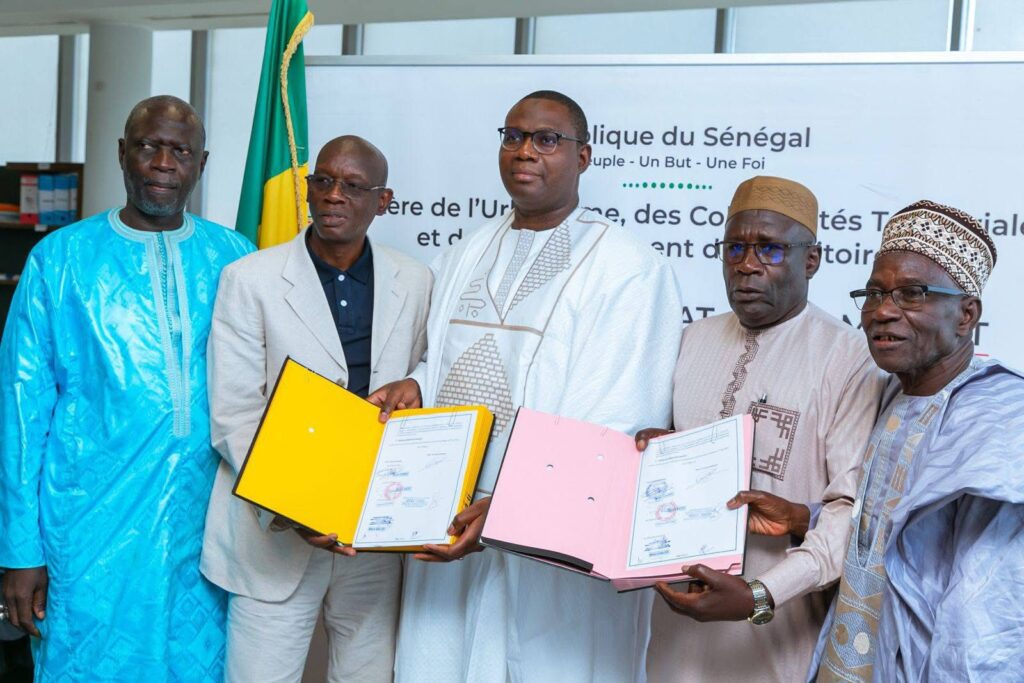
After several weeks of disruption that brought court operations across Senegal to a halt, clerks have agreed to suspend their strike following a landmark agreement with government authorities.
The decision, announced on August 6, was made to “give dialogue a chance,” setting the stage for a breakthrough in negotiations that culminated in a protocol signed on August 7.
The signing ceremony took place in a notably constructive atmosphere, a sharp contrast to the tensions that had clouded previous mediation attempts. Both sides described the discussions as frank and productive, reflecting a shared commitment to resolving long-standing issues affecting the judicial sector.
Presiding over the ceremony were the Minister of Justice and his counterpart, underscoring the government’s high-level engagement. The event was further distinguished by the presence of Mamadou Lamine Dianté, newly appointed president of the High Council for Social Dialogue.
A former trade unionist and a prominent figure within the Diomaye President coalition, Dianté replaces Innocence Ntap Ndiaye in this pivotal role.
His attendance was widely seen as a symbol of reconciliation and renewed cooperation among the judiciary’s diverse stakeholders. This development signals a strong commitment to institutional reform and the establishment of a more structured, transparent social dialogue framework within Senegal’s judicial system.
The agreement promises to ease the strain that had paralysed courts and disrupted legal processes nationwide, while offering hope for more sustainable and harmonious labour relations going forward.
For Senegal’s judiciary, the resolution of this strike marks not only an end to immediate unrest but also the dawn of a new era where dialogue, cooperation, and mutual respect are placed at the heart of social governance.



